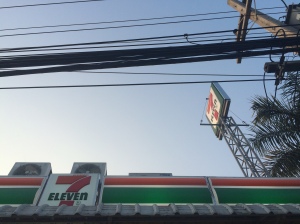She is from Ethiopia, she grew up somewhere between Addis Ababa and Adama, she doesn’t know exactly where. She’s eleven, that’s her guess. Arrived in a new country, with a new passport, a new mother and father; a small weatherworn suitcase in her right hand, plenty of luggage in her head.
Unpacking the luggage was a tough thing to do. The content of the suitcase fitted perfectly on one shelf, but the rest didn’t fit anywhere. Moreover, people would raise their eyebrows, they wouldn’t understand what was piled up in her head. Under the bed seemed like a suitable place.
She spoke Amharic, one of the oldest languages in the world. Juicy sounds glided between her teeth, swirled along the inside of her cheeks, lips curled at times. A succulent Semitic, abundantly supported by gentle swaying, a fierce look in the deep dark brown eyes and hands that drew circles in the air. Eloquent and yet not understood.
In the new world, faces lit up, she noticed, but it was a different light than what she knew. The light didn’t come from the inside, it was the reflection of a screen. She soon discovered the machine behind the reflection and she saw herself: on YouTube, dancing imaginary to the jazz tunes of Mahmoud Ahmed. She saw the mythical mountain Ras Dashan, the Highland and the Nile. She saw home and beyond, all shrunken to screen size.
Slowly, bit by bit, she narrated what she knew, with sounds, with hands and feet. She told the people about the land, the animals. Her words were guided by soft swaying, like a ship on a peaceful ocean, and she took her luggage from under the bed. Her face lit up without a screen. The stories made their way to her family, here and now.
However, Amharic didn’t seem enough, it fell short in this new world. Amharic was her mother-tongue, people said. Strange, she thought, because her mother had always excelled in absence; her language came from the land, the men around the table at the town square, the half open windows of kitchens, of doors ajar. It was the language of her motherland.
But now another language needed to serve her narratives, what was in her head. And it would help her to survive in the new world.
English, because of her new passport, her new mum, most of the kids in her new school. And English she learned: in the classroom she spoke gibberish that only her fellow students understood (they also sounded strange: they came from China and Korea, countries she knew from the atlas of her village school); at the table during lunch breaks, on the school farm, on the running track where she ran like a madwoman. On Monday evenings during track and field training, she learned English while running, always in ‘pole position’, as her coach said (she didn’t understand what that meant, as long as she could run ahead of the others, she felt happy). Whilst running, she recited the newly learned vocabulary of that week, as a mantra that ruled her running pace. ‘Beautiful, chair, laptop, farm, mummy, ice-cream.’ During every training, she added more words.
The swaying and circling hands continued, even in English. It was like breathing, it was impossible for her to stop.And she pronounced her name with a rolling r that always provoked a vibration in the listener’s body. ‘Hello, I am Berhane, I am from Ethiopia, a beautiful country in Africa.’
Forever she spoke the language of her motherland, with her eyes and her body.

